§4
HOLIDAY AND HOLIDAYS
1. Make close study the meaning of the given words and phrases.
a. different – difference
religion-religious
origin
custom - tradition
old - world - new world
transplanted
state - statesman
die - death
Christmas - Christian
Christian saints
colonist - colony - colonial
soil = ground = land
calendar = months, days
memorize - memory - memorial
labour (AE-labour) work
main = major = important
holiday — holidays — festival, connect, date — day, statesman — scientist — artist — poet — writer— traveller, bring — brought, Holland — France — Germany, homeland — Motherland — native land, simple — simply, celebrate — mark — observe.
b. Listen to the story and memorize the names and dates of main American holidays.
ABOUT AMERICAN HOLIDAYS
American holidays are different in origin. Some of them are religious, some are connected with dates in US history, the birthday of statesmen or the death of Christian saints, and so on.
The early colonists brought with them from England, Holland, France, Germany and many other countries the holiday customs of their homelands. These old world traditions transplanted to new-world soil.
A holiday has simply become, for most Americans, a day when one is tree from work.
This is the calendar of major holidays:
January 1 - New Year’s Day;
New Year's Day, of course, is January 1. The celebration of this holiday begins the night before, when Americans gather to wish each other a happy and prosperous coming year.

In March or April - Easter;
Easter, which falls on a spring Sunday that varies from year to year, celebrates the Christian belief in the resurrection of Jesus Christ. For Christians, Easter is a day of religious services and the gathering of family. Many Americans follow old traditions of coloring hard-boiled eggs and giving children baskets of candy. On the next day, Easter Monday, the president of the United States holds an annual Easter egg hunt on the White House lawn for young children.

May 30 - Memorial Day;
Memorial Day: Celebrated on the fourth Monday of May, this holiday honors the dead. Although it originated in the aftermath of the Civil War, it has become a day on which the dead of all wars, and the dead generally, are remembered in special programs held in cemeteries, churches, and other public meeting places.

July 4 - Independence Day;
The Fourth of July, or Independence Day, honors the nation's birthday -- the signing of the Declaration of Independence on July 4, 1776. It is a day of picnics and patriotic parades, a night of concerts and fireworks. The flying of the American flag (which also occurs on Memorial Day and other holidays) is widespread. On July 4, 1976, the 200th anniversary of the Declaration of Independence was marked by grand festivals across the nation.
Besides Thanksgiving and the Fourth of July, there are six other uniquely American holidays.
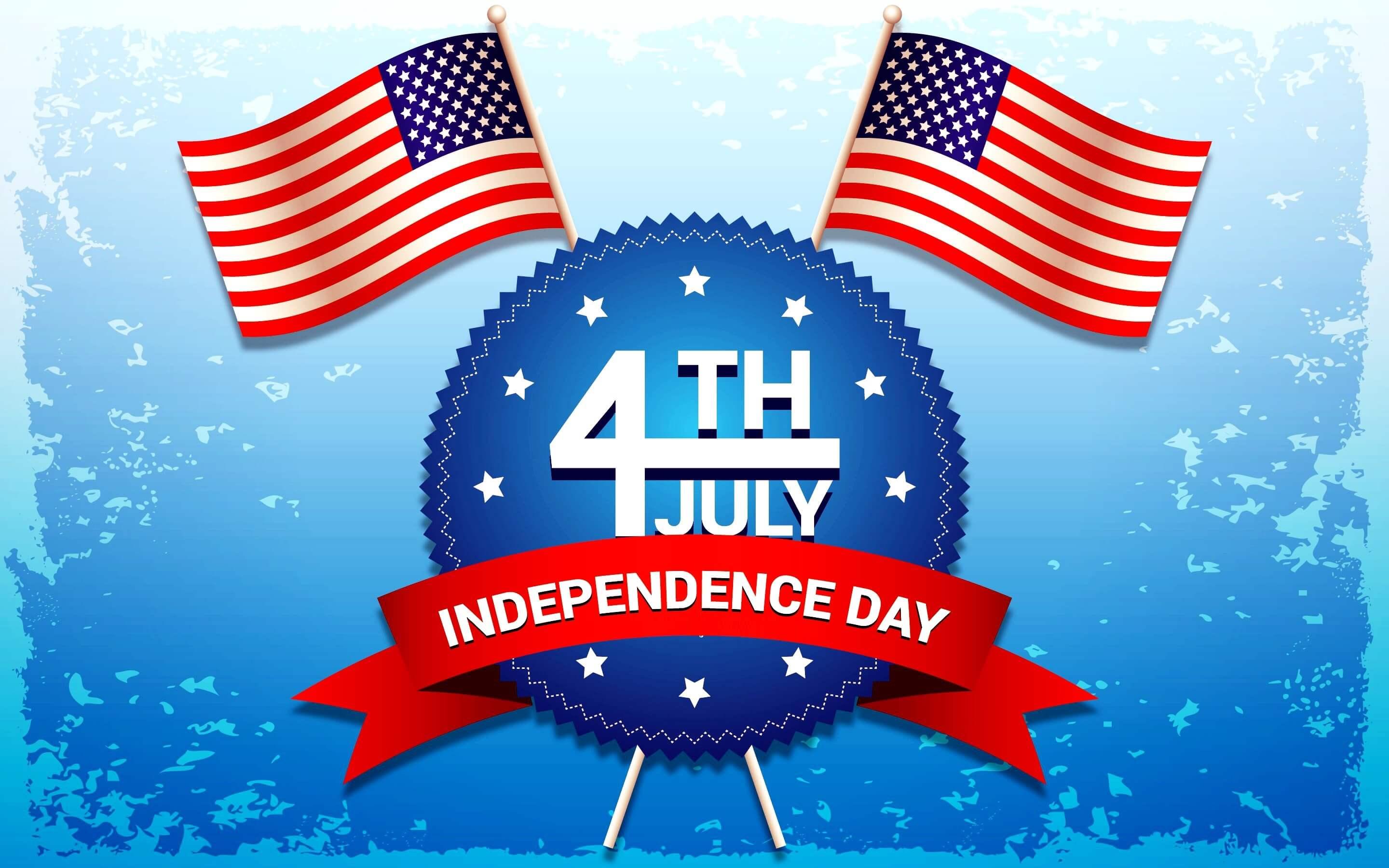
First Monday in September - Labour Day;
Labor Day: The first Monday of September, this holiday honors the nation's working people, typically with parades. For most Americans it marks the end of the summer vacation season, and for many students the opening of the school year.
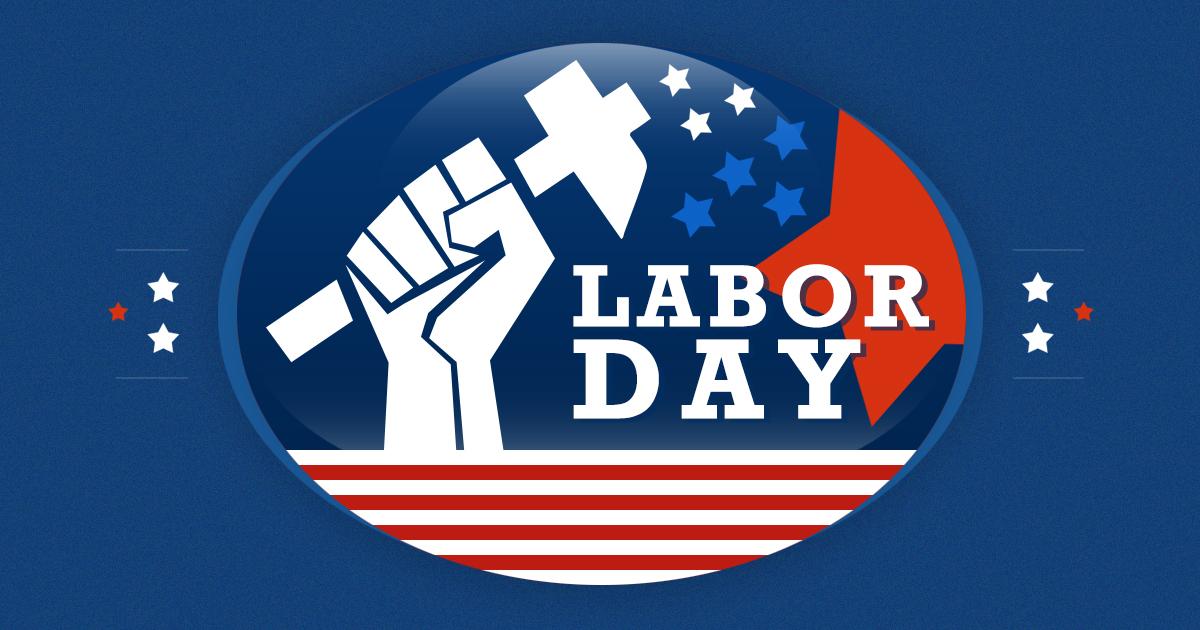
October 31 – Halloween
On October 31, Halloween (the evening before All Saints or All Hallows Day), American children dress up in funny or scary costumes and go "trick or treating": knocking on doors in their neighborhood. The neighbors are expected to respond by giving them small gifts of candy or money. Adults may also dress in costume for Halloween parties.

November 11 - Veteran's Day;
Veterans Day: Originally called Armistice Day, this holiday was established to honor Americans who had served in World War I. It falls on November 11, the day when that war ended in 1918, but it now honors veterans of all wars in which the United States has fought. Veterans' organizations hold parades, and the president customarily places a wreath on the Tomb of the Unknowns at Arlington National Cemetery, across the Potomac River from Washington, D.C.
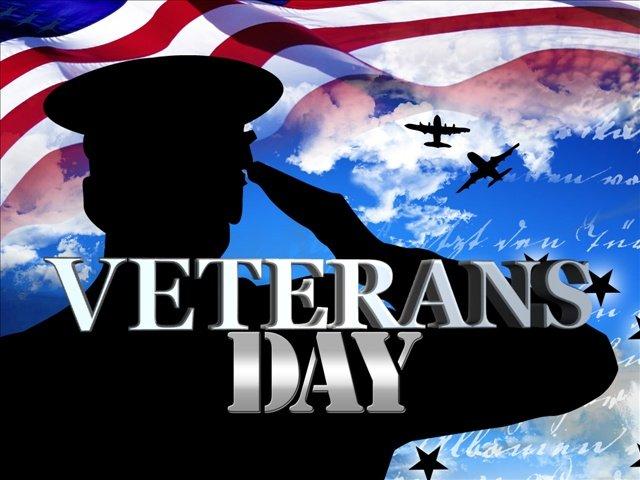
Last Thursday of November - Thanksgiving Day;
Thanksgiving Day is the fourth Thursday in November, but many Americans take a day of vacation on the following Friday to make a four-day weekend, during which they may travel long distances to visit family and friends. The holiday dates back to 1621, the year after the Puritans arrived in Massachusetts, determined to practice their dissenting religion without interference.
After a rough winter, in which about half of them died, they turned for help to neighboring Indians, who taught them how to plant corn and other crops. The next fall's bountiful harvest inspired the Pilgrims to give thanks by holding a feast. The Thanksgiving feast became a national tradition -- not only because so many other Americans have found prosperity but also because the Pilgrims' sacrifices for their freedom still captivate the imagination. To this day, Thanksgiving dinner almost always includes some of the foods served at the first feast: roast turkey, cranberry sauce, potatoes, pumpkin pie. Before the meal begins, families or friends usually pause to give thanks for their blessings, including the joy of being united for the occasion.
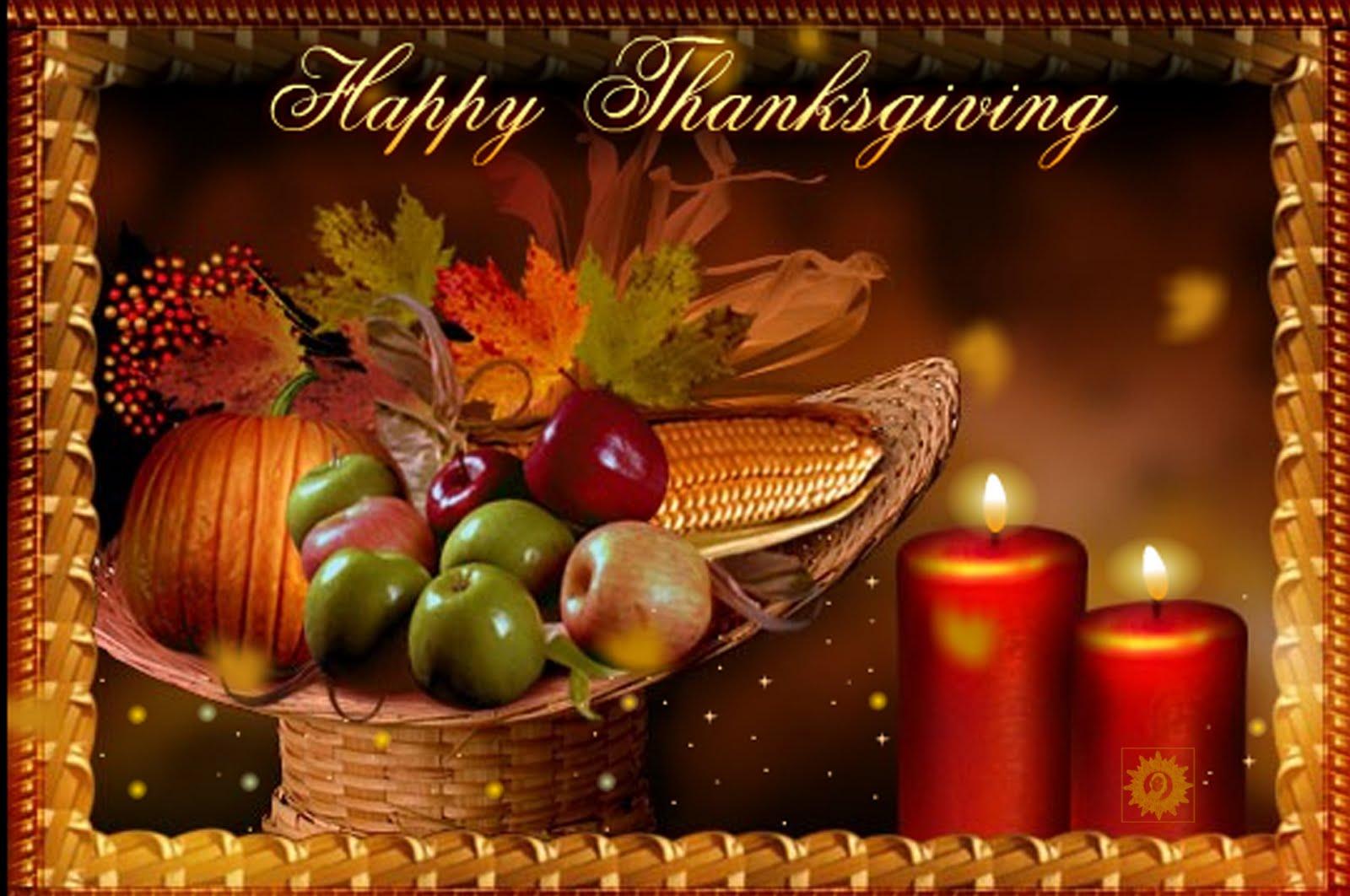
December 25 - Christmas.
Christmas Day, December 25, is another Christian holiday; it marks the birth of the Christ Child. Decorating houses and yards with lights, putting up Christmas trees, giving gifts, and sending greeting cards have become traditions even for many non-Christian Americans.

So there are eight main holidays widely celebrated by the Americans every year.
Besides the Americans celebrate Lincoln’s Birthday (February 12),
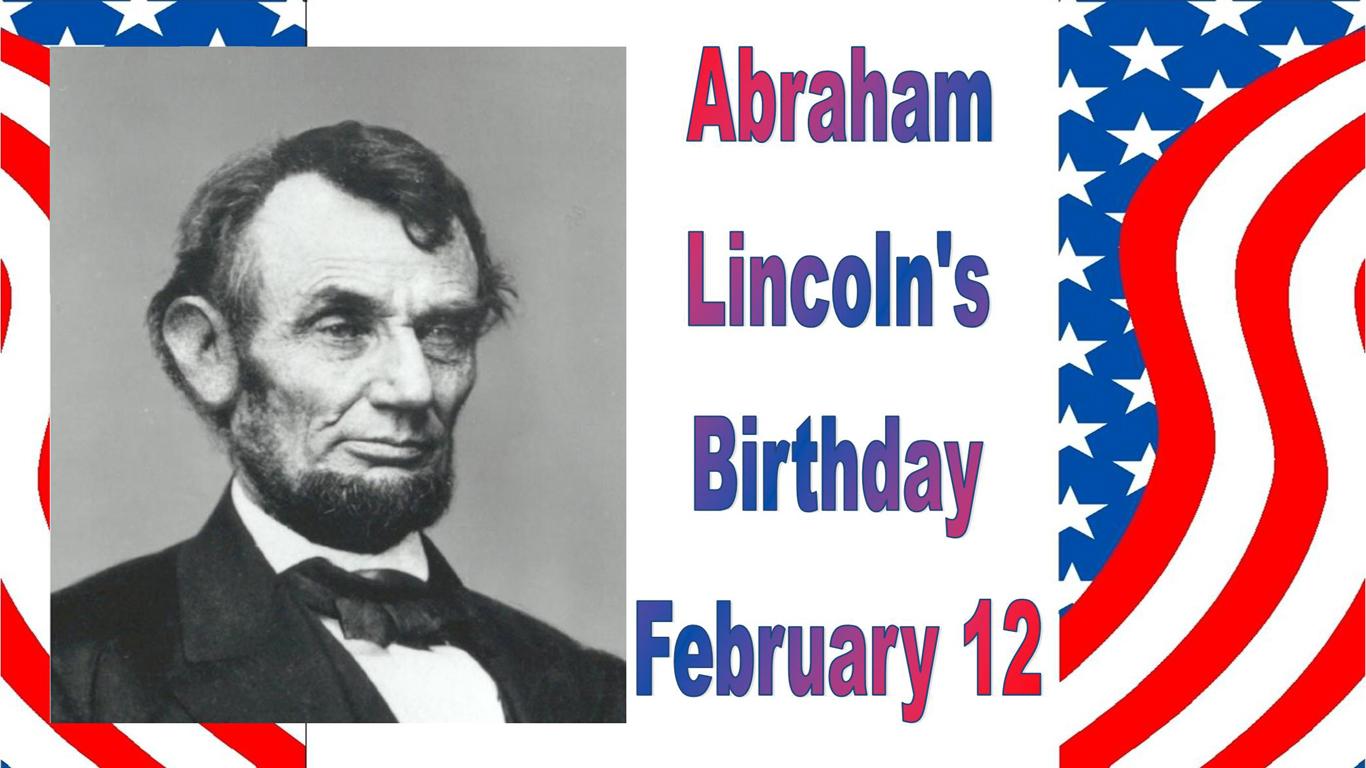
Valentine's Day (February 14)
While not holidays, two other days of the year inspire colorful celebrations in the United States. On February 14, Valentine's Day, (named after an early Christian martyr), Americans give presents, usually candy or flowers, to the ones they love.

and Washington’s Birthday (February 22).
Presidents' Day: Until the mid-1970s, the February 22 birthday of George Washington, hero of the Revolutionary War and first president of the United States, was a national holiday. In addition, the February 12 birthday of Abraham Lincoln, the president during the Civil War, was a holiday in most states. The two days have been joined, and the holiday has been expanded to embrace all past presidents. It is celebrated on the third Monday in February.
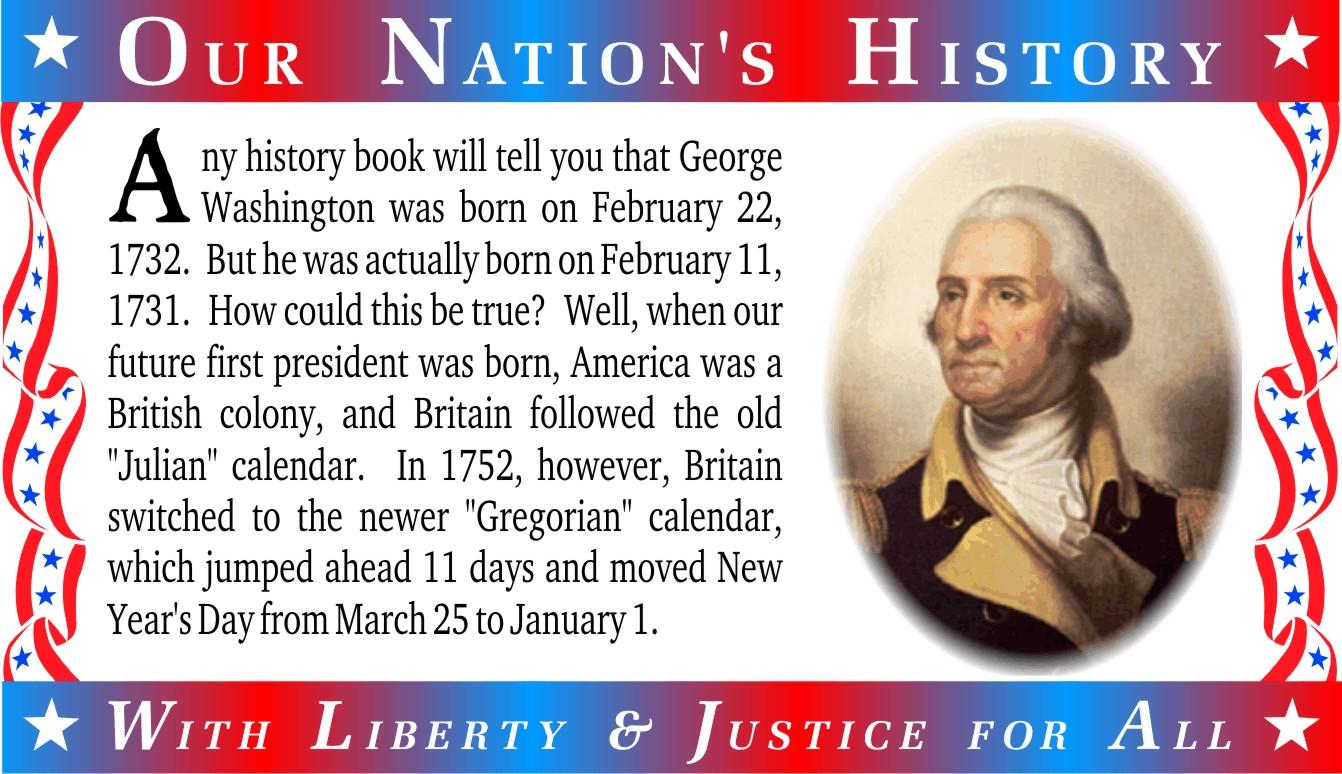
c. Tell your classmates what American. English, Kyrgyz and Russian holidays you know.
e.g. On the twenty first of March we celebrate our national holiday Noorus.
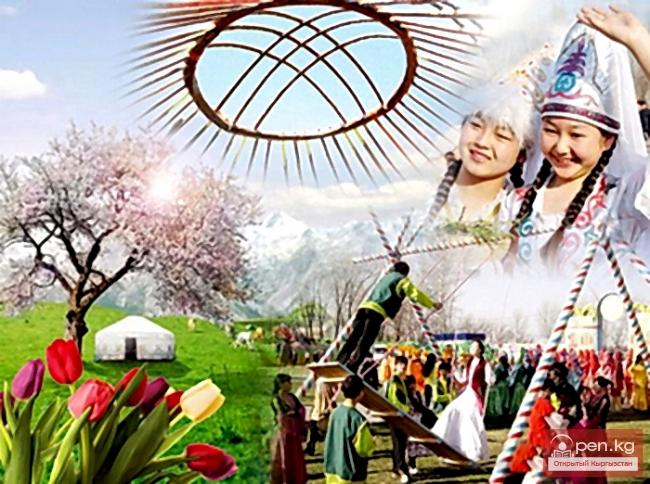
Use the following words and phrases while telling.
Celebrate, mark a holiday, give presents to, get presents from, make New Year resolutions, have a New Year party, send New Year resolutions, have a New Year tree with coloured lights and glass ornaments, see the old year out, see the New Year in, cook good things to eat, cook kabob, make plov, eat cakes, sweet, fruit, be kind, and so on.
National Celebrations
Holidays in USA
Americans share three national holidays with many countries: Easter Sunday, Christmas Day, and New Year's Day.
UNIQUELY AMERICAN HOLIDAYS
Eight other holidays are uniquely American (although some of them have counterparts in other nations). For most Americans, two of these stand out above the others as occasions to cherish national origins: Thanksgiving and the Fourth of July.
Martin Luther King Day: The Rev. Martin Luther King, Jr., an African-American clergyman, is considered a great American because of his tireless efforts to win civil rights for all people through nonviolent means. Since his assassination in 1968, memorial services have marked his birthday on January 15. In 1986, that day was replaced by the third Monday of January, which was declared a national holiday.
Columbus Day: On October 12, 1492, Italian navigator Christopher Columbus landed in the New World. Although most other nations of the Americas observe this holiday on October 12, in the United States it takes place on the second Monday in October.
OTHER CELEBRATIONS
Various ethnic groups in America celebrate days with special meaning to them even though these are not national holidays. Jews, for example, observe their high holy days in September, and most employers show consideration by allowing them to take these days off. Irish Americans celebrate the old country's patron saint, St. Patrick, on March 17; this is a high-spirited day on which many Americans wear green clothing in honor of the "Emerald Isle." The celebration of Mardi Gras -- the day before the Christian season of Lent begins in late winter -- is a big occasion in New Orleans, Louisiana, where huge parades and wild revels take place. As its French name implies (Mardi Gras means "Fat Tuesday," the last day of hearty eating before the penitential season of Lent), the tradition goes back to the city's settlement by French immigrants. There are many other such ethnic celebrations, and New York City is particularly rich in them.
It should be noted that, with the many levels of American government, confusion can arise as to what public and private facilities are open on a given holiday. The daily newspaper is a good source of general information, but visitors who are in doubt should call for information ahead of time.






























